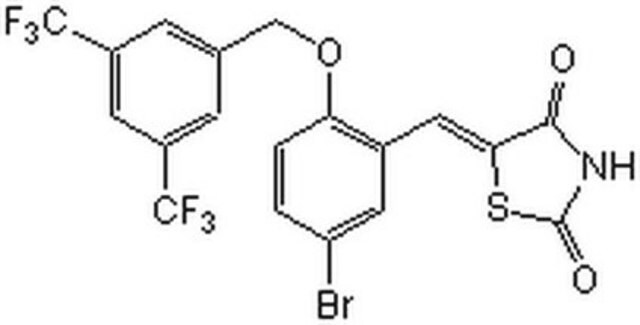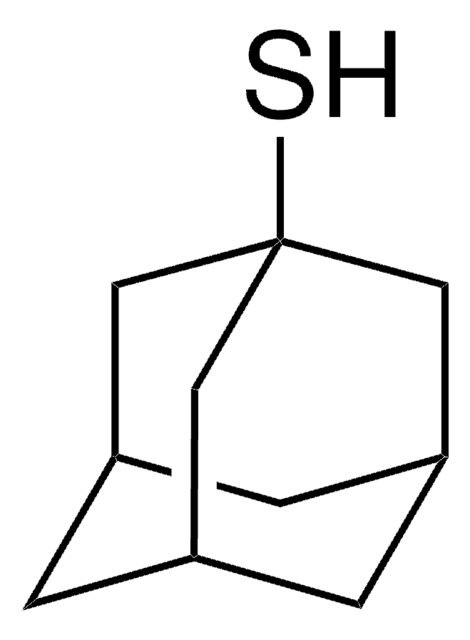669148
2-Ethylhexanethiol
97%
Synonym(s):
2-Ethyl-1-hexanethiol, 2-Ethylhexylmercaptan
About This Item
Recommended Products
Assay
97%
refractive index
n20/D 1.457
density
0.843 g/mL at 25 °C
SMILES string
CCCCC(CC)CS
InChI
1S/C8H18S/c1-3-5-6-8(4-2)7-9/h8-9H,3-7H2,1-2H3
InChI key
UCJMHYXRQZYNNL-UHFFFAOYSA-N
Looking for similar products? Visit Product Comparison Guide
General description
Application
Signal Word
Danger
Hazard Statements
Precautionary Statements
Hazard Classifications
Aquatic Chronic 3 - Eye Irrit. 2 - Flam. Liq. 3 - Resp. Sens. 1
Storage Class Code
3 - Flammable liquids
WGK
WGK 3
Flash Point(F)
140.0 °F - closed cup
Flash Point(C)
60 °C - closed cup
Personal Protective Equipment
Choose from one of the most recent versions:
Already Own This Product?
Find documentation for the products that you have recently purchased in the Document Library.
Customers Also Viewed
Articles
Inorganic nanomaterials are tunable by size, shape, structure, and/or composition. Advances in the synthesis of well-defined nanomaterials have enabled control over their unique optical, electronic, and chemical properties stimulating tremendous interest across a wide range of disciplines. This article illuminates some of the recent research advances of inorganic nanoparticles (NPs) in optoelectronics applications.
Our team of scientists has experience in all areas of research including Life Science, Material Science, Chemical Synthesis, Chromatography, Analytical and many others.
Contact Technical Service














